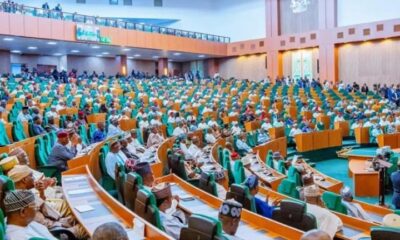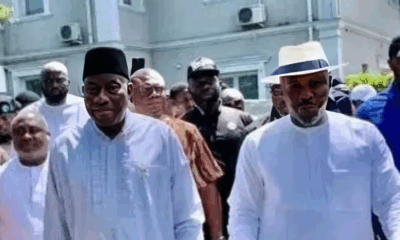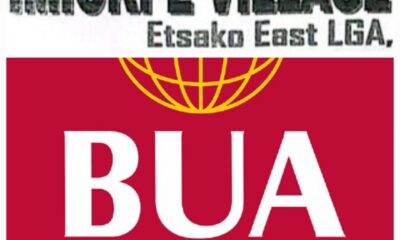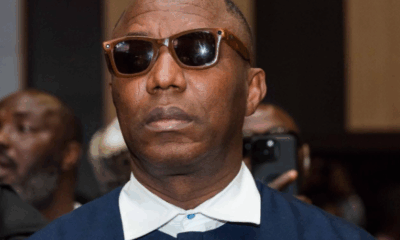A Chief Magistrate Court at Ogba, Lagos on Monday morning sentenced the Managing Director of Fidelity Bank, Nneka Chinwe Onyeali-Ikpe to six weeks imprisonment over disobedience of a garnishee order of court restraining the bank from allowing a judgment debtor access to his account.
Joined with the Managing Director to serve the imprisonment is the Company Secretary of the bank, Ezinwa Unuigboje.
Magistrate Lateef Owolabi gave the sentence sequel to a garnishee order he gave on December 6, 2022 asking 16 banks not to allow a judgment debtor, Prince Enabulele Ozaze access to his bank accounts pending the payment of N2.8 million judgment debt in suit involving the sale of a Toyota Corolla car.
In the main suit, Magistrate Owolabi had given judgment on October 13, 2022 in favour of the plaintiff, Jibrin Ahmed who sued the defendant over the payment of N2.8 million he made to the defendant for the purchase of a Toyota Corolla car. Magistrate Owolabi in the judgment said that the claim before the court is summons used in action for debt or liquidated money demand with or without interest. Liquidated demand, according to him, is one ascertainable as a matter of arithmetic precision without further investigation.
He then said: “I have examined the whole process filed by the claimant and hold that the claimant is entitled to judgment not necessarily because the defendant is absent, but because the claimant has made a case worthy of being entitled to judgment. The totalities of evidence presented are relevant and reliable”.
There magistrate thereafter entered judgment against the defendant in the sum of N2.8 million which is due to the claimant over the transaction that took place in July 2022.
In order to reap the fruit of the judgment, the claimant’s lawyer, Alayo Akanbi filed a garnishe proceeding before the court and attached 17 banks, and asked the court to stop the banks from allowing the defendant to draw money from his accounts with them pending the liquidation of the debt. The garnishe order was granted on December 6, 2022.
However, on January 25, 2023, the claimant, now judgment creditor deposed to an affidavit before the court where he showed that the garnishe order have been flouted by Fidelity bank. He showed instances of how the judgment debtor had been withdrawing funds from his account to the extent that he had depleted the funds in his account with Fidelity bank. He claimed that the judgment debtor has N3, 165, 759.05k in his account with Fidelity bank as at January 12, 2023 when the garnishe order was served on the bank.
By January 15, three days after service, the judgment debtor had withdrawn N725,547.80k from the account. The following day, January 16, 2023, another N251,305.90 was transferred out of the bank. On January 17, the legal officer of the bank Obianuju Nwosu confirmed service on the bank as at December 22, 2022 and further apologized for the transactions on the account.
On January 18, 2023, the court ordered that ordered that the Managing Director, and Company Secretary to appear in person before the court to explain why they should not be committed to prison for allowing the judgment debtor to dissipate the funds in his account after the service of the garnishe order nisi.
At proceeding on Monday February 6, the Managing Director and Company were not in court as ordered. Lawyer to the judgment creditor told the court how the two had disobeyed the garnishe order of the court.
Magistrate Owolabi in his ruling sentenced the Managing Director and Company Secretary to six weeks imprisonment each. He further ordered Lagos State Commissioner of Police and any officer under his command to arrest the duo, bring them to court for onward transfer to the appropriate correctional center.

 BIG STORY5 days ago
BIG STORY5 days ago
 BIG STORY5 days ago
BIG STORY5 days ago
 BIG STORY3 days ago
BIG STORY3 days ago
 BIG STORY2 days ago
BIG STORY2 days ago
 BIG STORY4 days ago
BIG STORY4 days ago
 BIG STORY4 days ago
BIG STORY4 days ago
 BIG STORY5 days ago
BIG STORY5 days ago
 BIG STORY2 days ago
BIG STORY2 days ago



















